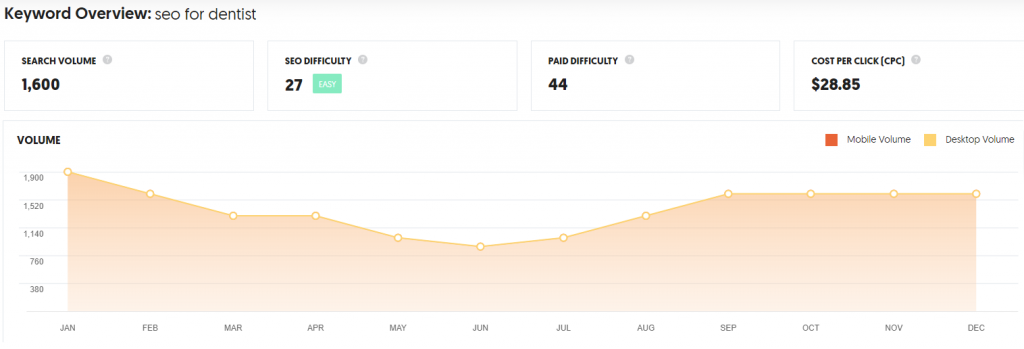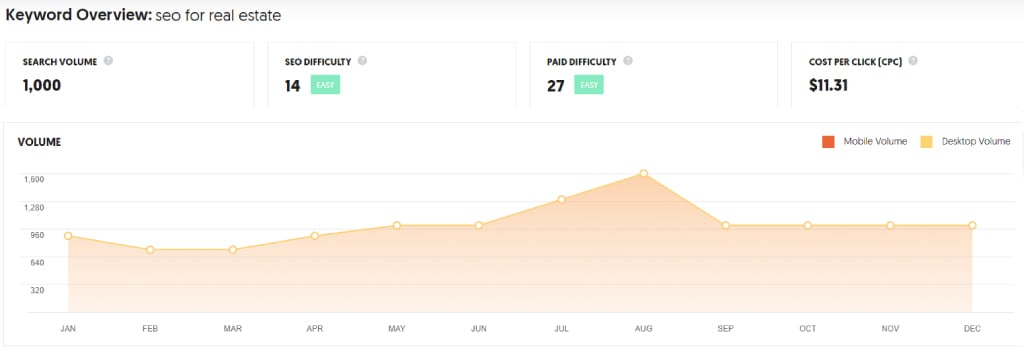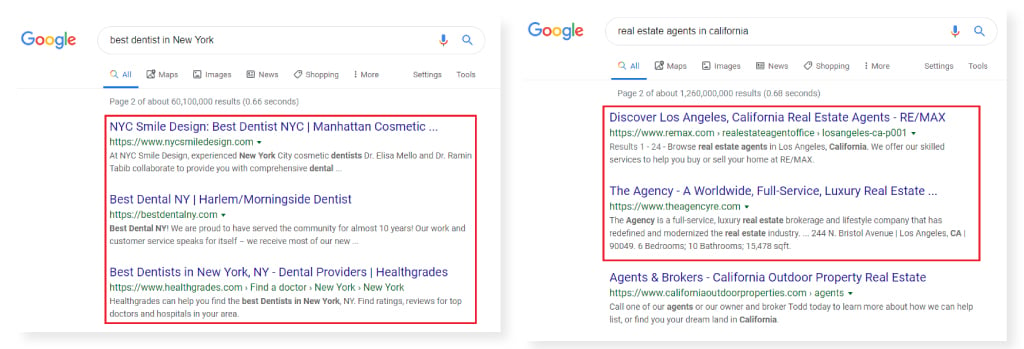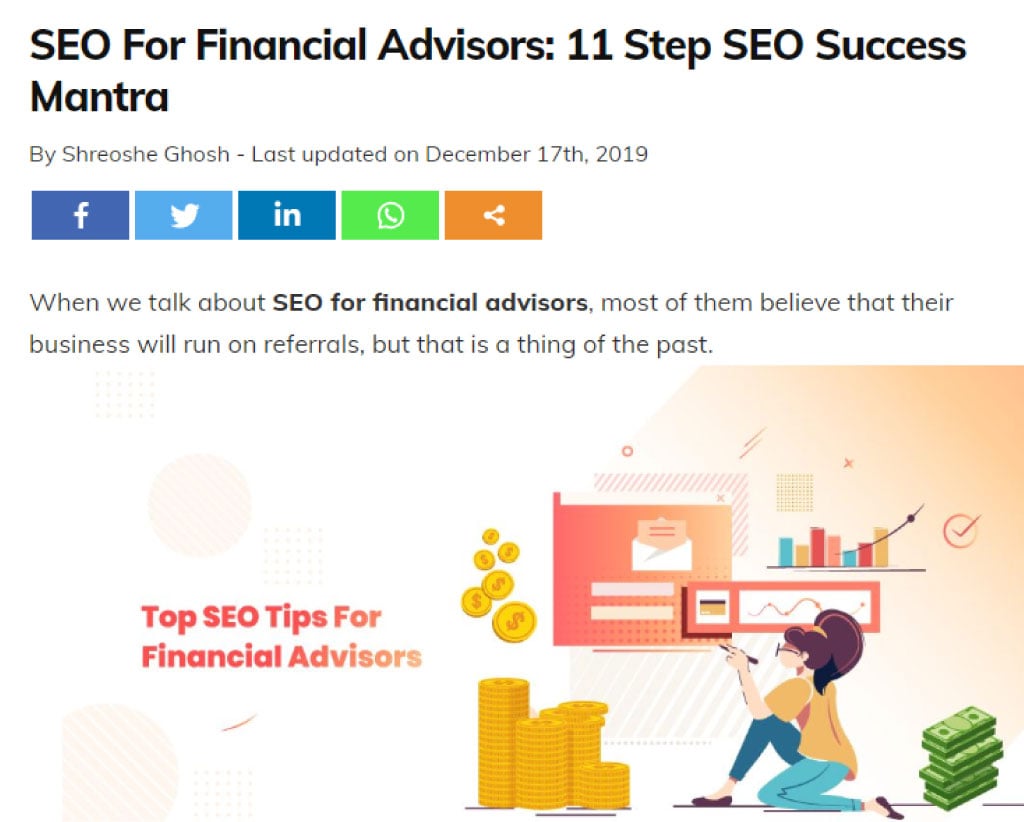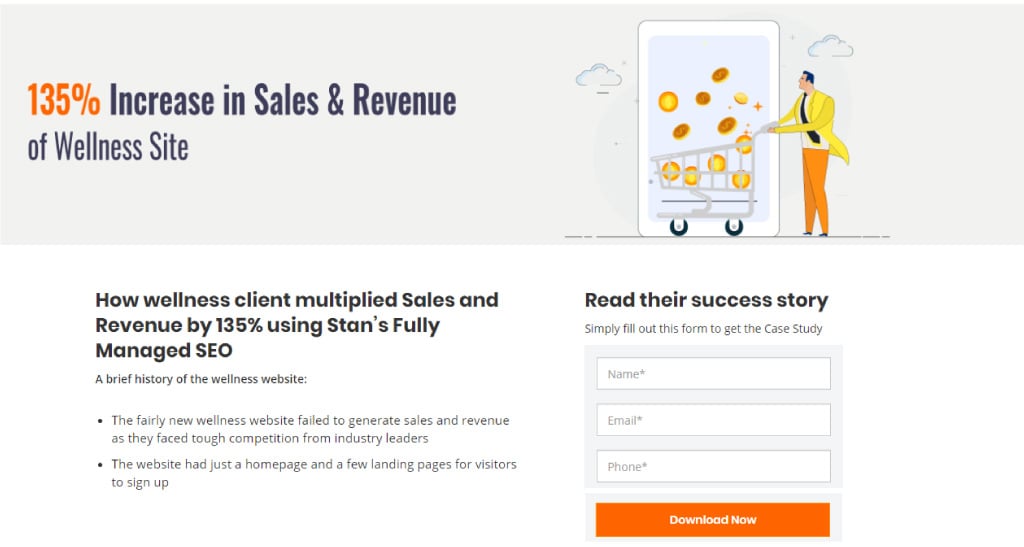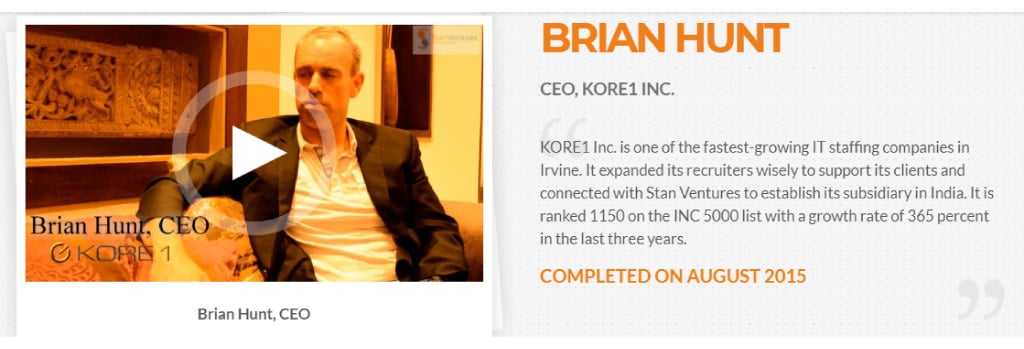Table of Contents

- Here are 9 tips for getting more SEO clients.
- 1. Offer Free SEO Audits
- 2. Pick A Specific Niche
- 3. Develop Industry Partnerships
- 4. Leverage Marketing Conferences
- 5. Build Pillar Content
- 6. Use Social Media to Your Advantage
- 7. Reach Out on LinkedIn
- 8. Offer Monthly SEO Packages
- 9. Include Reputation Signals
- How to Get SEO Clients – Our 30-Day Plan
- Wrapping it Up
Doing SEO as a service has never been easier before!
You may be wondering how I’m able to make such an affirmative statement when SEO agencies worldwide are scratching their heads, wondering, ” How to get SEO clients?”
If you’re confident with the quality of the SEO services provided by your agency, trust me: getting new SEO clients is just a few miles away. Giving up now could mean leaving high-value treasures behind for your competitors to pick up.
Was your agency built around the ideology of serving businesses with quality traffic, leads, and sales? Let me give you some awe-inspiring tips that will change your SEO business forever.
Here are 9 tips for getting more SEO clients.
1. Offer Free SEO Audits
Many companies, especially small businesses, overlook SEO and do not update their websites frequently. What if you can genuinely tell them that it’s time to concentrate on their website’s SEO?
Do a Google search and handpick companies that need to optimize their websites. Perform free SEO audits and contact them with the results.
Now that you are already delivering value to these companies, they are more likely to want your SEO services.
So, that’s a smart way to boost conversion rates while translating opportunities into a profitable business.
2. Pick A Specific Niche
SEO is a competitive space, and there are many SEO agencies out there. So, how do you stand out and tell your potential SEO clients that you deliver exactly what they want?
One way of doing it is narrowing down your niche. For instance, if link building is your cup of tea, you can pitch your services for “powerful contextual link building”.
You can also choose to target SEO clients based on industries where you have expertise or see profitable opportunities. For example, pitching your services as SEO for law firms or SEO for e-commerce will help you attract the attention of a specific set of SEO clients.
Listen to our SEO On-Air podcast episode with Chris Dreyer, CEO and founder of Rankings.io. He talks about how his agency became successful after finding a niche within a niche.
3. Develop Industry Partnerships
Partnering with the right people can do wonders for your agency in terms of gaining new SEO clients.
Before you initiate collaborations, make sure your customer base meets your partner’s at one point or the other. For example, when you partner with companies that provide services such as web design, content, and social media, they can attract potential clients for your SEO agency.
This way, the two of you can reap mutual benefits, and it is a win-win.
4. Leverage Marketing Conferences
Always make it a point to address people at or at least attend marketing conferences.
Why?
These events make way for you to establish your expertise while creating opportunities to come in contact and have discussions with prospective SEO clients.
Yes, nothing is better than someone approaching you and asking, “Do you offer SEO services?”.
5. Build Pillar Content
Your content should educate your audience. That’s a fair point.
But how long do you stick to topics like “tips and tricks for SEO success” and “ SEO strategies to follow”?
After all, these are what everyone talks about.
You need to be one step ahead.
How about educating SEO clients while opening doors for them to explore all related resources within your website?
Creating pillar content is the key.
This way, you give your readers everything they want while disclosing your expertise to drive sales.
6. Use Social Media to Your Advantage
Social media is a hub of online users. Create social handles for your SEO agency, and make sure you put up posts in them from time to time.
First, your social media posts help your followers learn something new while allowing them to know about the offers and discounts you provide.
Second, a potential client wanting to avail of your service will check your social media presence. At such times, your social media actions speak for your credibility.
If you have created social handles but haven’t been there in a while, you will miss out on your clients.
7. Reach Out on LinkedIn
LinkedIn is one of the most trusted networking platforms at the moment. Send genuine outreach messages to your potential clients on LinkedIn.
Since people send spammy/promotional messages on LinkedIn, your message may go unnoticed if it is not drafted so that it stands out.
One, personalize your message using the corresponding profile information.
Two, make sure you deliver value to your prospects. For instance, as said earlier, offering a free SEO audit or providing innovative SEO tips can create a positive impact.
You can also send a follow-up message if you haven’t received a reply. Make sure you don’t pester people with frequent follow-ups. Otherwise, you might end up annoying them, which, in turn, creates a poor impression of your business.
8. Offer Monthly SEO Packages
Most of your SEO clients would want to know your agency pricing. So, it is a good move to help them start their journey with you using a transparent monthly package.
Why offer pricing packages at all?
Let’s consider two websites: A and B. While website A says,” Contact us for pricing,” website B actually displays a pricing table with a wide range of plans to choose from.
A client visiting these two websites will likely opt for website B because it offers more transparency than website A.
Given the scenario, offering pricing packages can improve the chances of your potential clients choosing you over your competitors.
9. Include Reputation Signals
SEO Clients often choose a reputed agency over those that have yet to establish a robust presence in the SEO realm.
So, it is essential to add reputation signals to your website.
How do you do that? Here are some instances.
- Case Studies – Case studies prove that you have helped similar clients eliminate pain points and achieve SEO success.
- Client Testimonials– A brief note from your clients explaining their first-hand experience of working with you can add to the credibility of your SEO agency.
- Location and Address- Your clients would certainly want to know where you operate from. So, include your office address on your website.
- Industry Awards – Pin your awards and accolades on your website so your visitors can easily see them.
- Featured Posts—An additional perk is letting your potential clients know that you were featured on reliable sites such as Forbes and others.
- Expert reviews – This could be the best reputation signal as you get a micro or a macro SEO influencer to discuss your service. Check out the video below of an expert review we got:
If you’re struggling to find SEO clients in the next three months, we guarantee you will be flooded with requests from top businesses seeking SEO service. Ready to take the challenge?
How to Get SEO Clients – Our 30-Day Plan
Day 1 – 5: Select the Target Audience
As an agency owner, you should know that the industry is abuzz with companies that promise improved traffic and sales. Not all companies do what they say, and websites like to get bespoke solutions that work specific to their industry.
There is a growing demand for SEO agencies that cater to a specific niche industry — for example, seo for dentists, real estate seo, etc.
There is a growing demand for niche-specific SEO services, and this trend has been growing amongst industries that fall under the YMYL categories, such as Insurance, Medical, and Banking.
If you have prior experience bringing success to a particular niche, ensure that your website has a separate service page for this niche.
Day 6 – 8: Google’s Second Page is Your Goldmine
Businesses, be it of any niche, want themselves to be found on the first page of Google’s search results page. Achieving this requires a lot of SEO attention, but not all agencies can achieve this feat.
It would be beneficial if you understood the target audience and their business goals better and what it takes to rank a website in the niche that you’re focusing on. Simply conduct a Google search for buyer intent keywords specific to your industry and see the second and third pages of the Google Search Results Page.
These are the low-hanging websites that can top the rankings if you optimize them. Additionally, each one of them is a prospect for you.
Day 8 – 18: Get the Assets Ready
Before you do the final step, which is reaching out to the prospects, ensure that you have a list of assets ready to be delivered for free.
Business owners are inundated with emails and calls from other agencies. However, your agency is special and you want the target audience to understand the value that you provide.
This is only possible by providing them with ample result-oriented data and reports of how your agency helped other websites reach the top of the Google rankings.
Assets Required
Blogs: One of the easiest ways to get niche-specific SEO clients is by doing the most effective content marketing strategy- blogging. Website owners, despite their incapacity to conduct SEO practices, like to read a lot about how it works and how it can benefit their business.
If your agency focuses on niche-specific clients, ensure that you have blogs that answer the target audience’s frequently asked questions.
Some SEO agencies hesitate to reveal their SEO optimization process. One prime reason for this is the fear of prospective clients implementing it without signing up.
We have strong reasons to conclude that clients who read such blogs tend to signup 50% more than clients who land on service pages. The simple reason being their lack of SEO knowledge and resources.
Case Studies: Business owners are looking for inspiration online! Decision-makers who have spent on SEO are inclined to learn how their investment generates revenue. Since this goes for all niche industries, having a case study to refer to will increase the probability of clients signing up for your services.
A case study must have appropriate data and stats that show how the client’s website was performing before and after you did the optimization.
Increased organic traffic, lead generation, and sales must be given more focus, as niche businesses are interested in the conversion aspect more than the amount of organic traffic.
If you can include the client’s name (of course, with prior consent), your case study can stand strong, and the trustworthiness will skyrocket.
Free Templates: Providing free templates to clients is yet another controversial topic in SEO. However, templates have proved useful for us as clients usually find it hard to fill the on-page, off-page, and technical audit templates by themselves.
With that said, the prospects get good vibes about the process you follow for each SEO strategy and will get back to you with fixes. So, consider the free templates as an asset with immense capability to attract clients.
Video Testimonials: If your SEO agency is still building its reputation, consider testimonials an important asset that you cannot live without. Website owners are usually confused about trusting SEO agencies, especially if they are yet to grow as a brand, which, of course, will take time.
The strategic way to wriggle out of this is by including genuine testimonials. Once again, I need to stress the word ‘genuine’ because fake testimonials are a big no-no if you want to succeed in the SEO industry. Detecting fake testimonials is as easy as doing a simple image search on Google.
A more rewarding approach would be to have video testimonials from clients, as this adds more trust than traditional text-based testimonials.
Day 19-25: Reach Out
Once you’ve prepared the list of 100 sites and the minimum number of assets mentioned above, the next step is to contact the website owners.
Over email: It’s imperative to identify the decision-makers who run the websites you’re reaching out to.
Most websites provide an email address that is usually handled by people below the hierarchy. However, you need the email addresses of decision-makers who are always at the top of the hierarchy. That is why you may want to use a tool like Skrapp.io, which can provide you with up to 150 genuine and verified email accounts for free.
Draft the email focusing on missed opportunities and how you can help them beat their competitors and rank at the top of the Google search results.
Now, strategically place the assets within the body and try to provide a free audit report generated using any of the tools that you’re comfortable using.
The assets, though given for free, must be sent only after the user provides the information you require to convert him into a warm lead.
Also, send the email through a mailing system like MailChimp or even MailChimp alternatives to track the open rate and bounce rate.
Over Call:
It is not easy to convince clients, especially when you are pitching for SEO services via a call. The decision-makers that you are going to deal with possess very little knowledge about SEO. As the saying goes, a little knowledge is dangerous!
The usual questions we hear from prospective clients range from “Can you rank me on the #1 Position in a Month?” to “I didn’t get results from my previous marketing agency; how can I trust your service?” Another common question that pops up nowadays is, “I heard SEO is dead; why should I invest if it doesn’t work anymore?”
Even though these are double-edged questions, a well-thought-out answer can seal the deal. Your digital marketing team must educate the client daily, especially if they are connected via call.
Never promise things that cannot be done. The best answering formula to pique interest in your service is first to accept their claims, if any, and then contradict them with reasons.
The search engine algorithms are so much trained that ranking #1 in a week or a month is now a thing of the past. Even if this is achieved, maintaining the #1 position requires a lot of systematic SEO marketing campaign efforts.
A majority of the client’s businesses that you reach out to may have already invested in SEO but without the desired outcome. In such cases, it’s crucial to present them with an SEO audit of the website, explaining the missed opportunities.
Day 26-30: Follow Up
You are now seeing positive responses from the majority of the sites that you reached out to. However, there are chances that some may not respond. Ensure that you follow up with each email based on the data provided by the mailing system.
Wrapping it Up
SEO is a systematic process, and likewise is onboarding new SEO clients. There are challenges that you may face in the onboarding process; however, these impediments can be dealt with strategically by showcasing the impeccable strength of your SEO agency.
The more SEO clients you want to onboard, the more you must educate them about SEO with evidence. The evidence, in this case, is the assets and reports that you create. This will speed up the new client onboarding processes with realistic expectations, and you will no longer be asking the question, “How to Get SEO Clients?”
Hope this content was useful. Post your comments if you enjoyed reading this article.
About the author
Share this article

Want to Boost Rankings?
Get a proposal along with expert advice and insights on the right SEO strategy to grow your business!
Get Started












